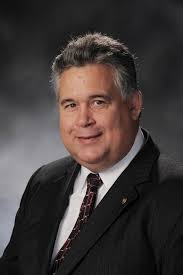I honestly didn’t think that The Supreme Court was going to go this way on the Hobby Lobby case. In what universe, after all, could my boss’s religion be imposed upon me? Why would we, who fear “the government being in our exam rooms with our doctors” allow our bosses to be there when we have our legs in the stirrups?
Nevermind that Hobby Lobby is inconsistent, allowing both male birth control and free viagra and investing in birth control products in their portfolios.
Nevermind that Hobby Lobby falls victim to the same logical fallacy that all anti-contraception/anti-abortion forces do: limiting access to birth control when access to birth control lowers abortion rates. These people hate, hate, hate abortion, but seem to hate–a) women’s access to baby-free sex, and b) logic–more.
Nevermind that, as many commentators have noted, this is only going through because the religion in question is Christianity. The Supreme Court previously denied applying the principle in question to Native American groups who wanted access to their traditional herbs in ceremonies. And, as Bill Maher noted, if this company were Muslim-owned, and they wanted the insurance plan to align with Sharia law . . .
Nevermind that the precedent set is dangerous in two ways. 1. The ruling opinion says that this is about what the employer “believes.” What if my boss believes that a woman’s body should be a temple in case she happens to get pregnant? After all, many drugs could harm a fetus if they’re in a mother’s system. People shouldn’t conceive on depression medication or bipolar medication, after all. And, even if a woman doesn’t plan on getting pregnant, even if she’s on birth control, it can still happen. What if my employer believes even sillier things? What if he thinks my asthma medicine is an abortative? Since this is about his belief now, I guess my access to breathing is up to him.
2. This ruling can be applied widely–it’s not just about birth control. Some employers are already trying to get it to apply to their treatment of gay people, arguing that it’s against their religion to not discriminate. Decades ago, some employers argued that their religions allowed them to pay women less and to treat women differently. The Supreme Court told them no, but this newer religious freedom statute may allow it now. And, in terms of health care, some religions forbid blood transfusions, and some forbid any medication at all.
Let’s leave all that for now.
The upsetting aspect of this that isn’t being talked about enough is what the Hobby Lobby people and the majority decision said will be done about those women who do want birth control. You see, since it’s a horrible burden for Hobby Lobby to have birth control in its healthcare plan, the women or the government is supposed to figure out how to make sure women have access to a perfectly legal product that the United Nations and the WHO recognize as a basic human right.
Let’s say women should figure this out themselves. I know women who haven’t been on hormonal birth control due to its cost. (Insurance helps a lot.) An IUD can be hundreds of dollars. The pill, without any insurance, ranges from $37 to $162. Not all women, by the way, can just opt for the cheaper version. Our bodies are complicated–it often takes a long time to find the right pill. The wrong pill can cause BIG problems. And even if a woman can go with the cheaper version, sometimes $40 a month is a lot. When we think about the women who need this most–women of childbearing age on the margins–women who live (supporting themselves and often others) on or below (in the case of many undocumented women) the minimum wage–women who live on or below the poverty line–$40/month is sometimes not an option.
Let’s say the women can come up with the money. They buy and use the birth control. Where did that money come from? From their employer! Oh, no! Money from Hobby Lobby (HL) is going to birth control! It’s just instead of HL giving money to Kaiser and Kaiser giving access, HL gives the money to the woman, who gets her birth control . . .
Which brings up another problem. You see, when we receive health insurance from our employers, it’s not a gift. It’s part of our salary–part of our compensation package. We factor it in when deciding to take a job. (I moved to California because UCD, unlike schools in the South, offered healthcare to graduate student workers.) My paycheck includes information about my gross and net and also how much my organization puts into my healthcare. This month, for example, I paid $193 as my portion of insurance. UCD paid $1084.
Somewhere in all of that money is my birth control. Companies who refuse to allow birth control in their health care plans are thus not only denying women a basic human right & inserting their religion into the lives of their employees. They are also cheating their employees out of part of their pay. They are ignoring that these employees also pay into their insurance (and thus should be able to avail themselves of the whole plan). They are insuring that women who want to use birth control must pay the same amount for their insurance, but must also come up with $37-$162 (without, of course, any increase in pay to compensate for the loss in their payment package).
Unless, of course, the government subsidizes healthcare for these women, as HL and the court implied it might have to do. Now, where would that money come from? Taxes. Taxes on the woman who’s being cheated, taxes on me, who, as a “middle class” person, pays a very high tax rate. Taxes on corporations. Thus, HL would be paying for birth control again–just to the government instead of to the insurance company. Unless it, like many corporations, manages not to pay taxes.
And that’s another problem–a problem we as a country seem to be ignoring. Corporations keep shifting the burden of basic life expenses onto the rest of us.
Why, when a woman has access to insurance, should my taxes be required to grant her birth control?
Because corporations would rather I pay it. After all, we live in a world where many low-wage workers, many Walmart employees and fast food workers, have to also live on public assistance. They’re fighting a rise in the minimum wage, saying they can’t afford it.
My fellow taxpayers, they can afford it. We’re the ones who can’t. We’re the ones paying enormous taxes for “entitlements”–assistance to people who work, but who aren’t paid a living wage.
The Hobby Lobby decision is not just the furthering of the Christian-theocracy agenda in this country; it’s not just the start of a dangerous precedent; it’s the strenghtening of our corpocracy–of corporations shifting the basic burdens of payment onto everyone else.
And what do they say about this? One man I heard on NPR, who won’t be giving his female employees access to birth control, said that if the women didn’t like it, they could go work somewhere else.
Yup. And if she can’t find that job, maybe she can get some birth control through her welfare package. Problem solved.






Recent Comments